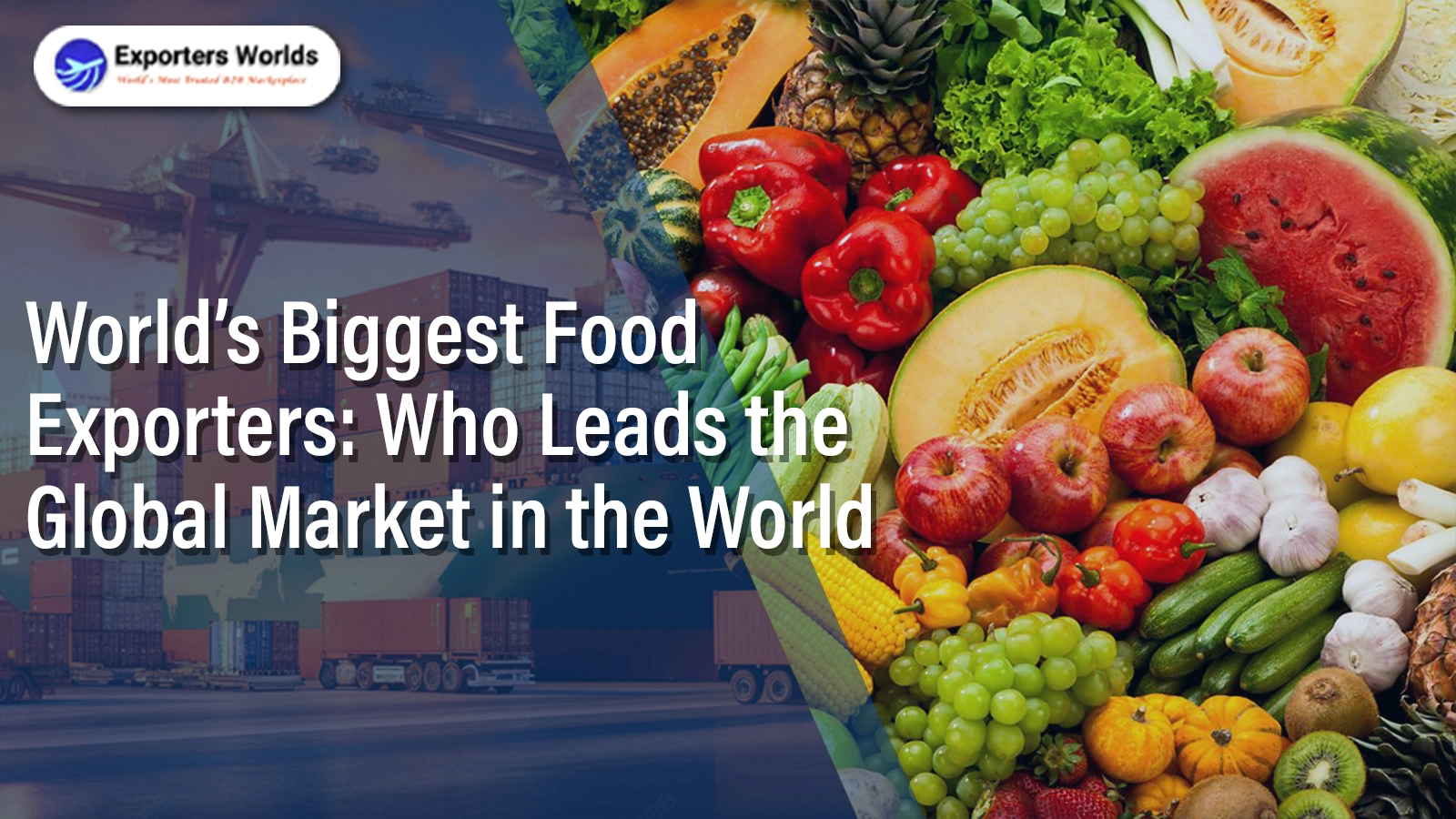Largest Exporter of Oil and Its Impact on UK Supply Chains 2025

Imagine waking up in London, and suddenly the cost of petrol at your local station has jumped by 15%, your grocery bills have risen, and transportation expenses for businesses are spiking. What caused this sudden disruption? The answer lies thousands of miles away, in the decisions of the world’s largest oil exporters. In 2025, understanding who exports the most oil—and how it impacts UK supply chains—is not just informative; it is crucial for strategic business planning.
Global oil markets are tightly interconnected. When a major exporter changes production levels, enforces new trade policies, or experiences geopolitical tensions, the ripples are felt across the UK economy. This article dives deep into the largest exporters of oil, their influence on UK supply chains, and actionable strategies businesses can adopt to safeguard operations.
Global Overview: Largest Oil Exporters in 2025
The global oil market is dominated by a handful of countries, each controlling significant shares of world exports. As of 2025, the largest exporters of oil in the world include:
-
Saudi Arabia – Holding the top position, Saudi Arabia exports roughly 7–8 million barrels per day (bpd). Its decisions through OPEC production quotas directly influence global crude prices, affecting everything from energy bills to manufacturing costs in the UK.
-
Russia – Despite ongoing sanctions, Russia exports around 5–6 million bpd, primarily heavy crude. Europe, including the UK, relies heavily on Russian supplies, making geopolitical developments a critical factor in pricing and availability.
-
United States – Benefiting from shale oil, the US exports 4–5 million bpd, largely to Asia and North America. Fluctuations in US exports can indirectly influence global oil prices, impacting UK import costs.
-
Iraq – Contributing 3–4 million bpd, Iraq plays a strategic role in maintaining global supply stability, especially for Europe. Infrastructure challenges or political instability can disrupt shipments.
-
United Arab Emirates (UAE) – Exporting approximately 2–3 million bpd, the UAE ensures consistent Middle Eastern supply, stabilizing markets in Asia and Europe.
-
Canada – Tar sands exports total around 2 million bpd, primarily to the US, providing North American supply security but contributing to global oil availability indirectly.
-
Kuwait – A smaller exporter with 1–1.5 million bpd, Kuwait’s consistent output complements broader Middle Eastern exports, helping prevent regional supply shocks.
These exporters collectively supply over 60% of the world’s traded crude oil, meaning their decisions are pivotal for global energy security and economic stability.
Impact on UK Supply Chains: Detailed Analysis
The UK relies on imported oil for over 40% of its energy needs, particularly in transportation, logistics, and energy-intensive manufacturing. Here’s a breakdown of how changes by major oil exporters impact UK supply chains in 2025:
-
Price Volatility: Sudden production cuts or trade restrictions by top exporters can cause crude prices to swing by $5–10 per barrel in days, affecting fuel prices and operational costs. For instance, a temporary export cut from Saudi Arabia in 2024 caused a 7% spike in UK fuel prices, demonstrating this sensitivity.
-
Supply Shortages: Over-dependence on limited exporters can create bottlenecks. A disruption in Russian shipments during geopolitical tensions would affect jet fuel, diesel, and gasoline availability in the UK.
-
Logistics Delays: Shipping routes from the Middle East or Russia are vulnerable to geopolitical instability. Delays in tanker arrivals can slow down manufacturing schedules, distribution networks, and retail restocking.
-
Inflationary Pressure: Rising oil costs translate directly to higher transportation expenses. For example, the logistics sector accounts for 8–10% of UK GDP, and fuel costs are a major component, meaning even modest price surges ripple across the economy.
-
Strategic Stockpile Needs: The UK maintains a minimum 90-day oil reserve, but prolonged disruptions necessitate careful planning to avoid shortages.
-
Business Risk Mitigation: Companies are increasingly implementing multi-supplier strategies, securing alternative fuel sources, and exploring energy-efficient technologies to reduce dependency on single exporters.
-
Impact on Manufacturing & Transport: Industries like chemicals, automotive, and aviation, which consume large amounts of fuel, are particularly sensitive. For instance, UK airlines reported a 15% operational cost increase when oil prices surged in 2023 due to Middle East production cuts.
By understanding these factors, UK businesses can proactively adjust contracts, diversify sourcing, and implement contingency plans.
Economic & Strategic Implications
The influence of the world’s largest oil exporters extends beyond day-to-day costs:
-
Energy Policy Influence: High dependence on imported oil drives the UK government to invest in renewable energy, alternative fuels, and strategic reserves to enhance energy security.
-
Supply Chain Resilience: Companies are adopting end-to-end supply chain monitoring, ensuring flexibility to switch between suppliers or shipping routes quickly.
-
Trade Negotiations: Disruptions often prompt the UK to explore trade agreements with multiple exporters to reduce reliance on a single country.
-
Investment Decisions: Fluctuating oil costs influence long-term capital expenditures, such as investing in fuel-efficient fleets or alternative energy infrastructure.
In essence, monitoring oil exporters is as much a strategic exercise as an operational necessity.
Recent Trends & 2025 Forecast
-
Saudi Arabia remains the world’s largest crude exporter, controlling over 10% of global exports, and continues to stabilize global markets through OPEC decisions.
-
Russia, even with sanctions, has shifted shipments toward Asia, maintaining significant export volumes.
-
The US has become a net crude exporter for the first time in history, reshaping global trading patterns.
-
Iraq, UAE, and Kuwait continue to provide steady output, reducing short-term volatility.
-
Canada remains a key supplier for North America, contributing indirectly to global availability.
Interesting Facts:
-
Saudi Arabia’s exports can impact global prices by $5–10 per barrel within weeks.
-
The UK imports almost 40–45% of its crude from OPEC countries, underlining vulnerability to supply changes.
-
Alternative energy adoption in the UK is increasing but transport remains heavily reliant on oil imports.
-
The US shale boom has reshaped trade flows, providing more flexibility to global markets.
-
Oil trade is increasingly sensitive to geopolitical stability, meaning businesses must monitor exporter decisions closely.
Case Study: Risk Mitigation in Practice
Consider a UK logistics company in 2025 facing a surge in fuel costs due to reduced exports from Saudi Arabia and Russia. By leveraging a verified global supplier network, they secured additional contracts from UAE and Canada, balancing supply and stabilizing operational costs.
Exporters Worlds provides a practical solution:
-
Connects UK businesses with verified international suppliers
-
Enables access to alternative sources to reduce dependency
-
Simplifies trade processes and ensures compliance with global standards
This proactive approach allowed the company to maintain deliveries on schedule and reduce financial risk despite market volatility.
Closing Thoughts
In 2025, knowing the largest exporter of oil is essential for UK businesses. From price volatility to logistics delays and inflationary pressures, the influence of Saudi Arabia, Russia, the US, and other major exporters cannot be underestimated.
Businesses navigating this landscape need strategic foresight. Platforms like Exporters Worlds offer access to verified suppliers, helping companies diversify sourcing, secure trade agreements, and build resilience against global oil market fluctuations.
Understanding the market is step one; taking action is what ensures your supply chains remain strong, costs stay predictable, and your business thrives, regardless of global oil dynamics.




